Common Questions About Our Tuition Services
Ask A Question And We Will Answer
In this article we answer some of the common questions that parents ask. We hope that you will find it useful.
Is it One to One?
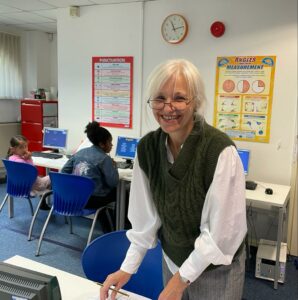 Yes, but each tutor has four or five students at a time. They are able to give each student one to one attention, even though they may be learning different subjects or be different ages. Each week, the tutor will plan a individual programme for your child to help them with any areas of weakness. Because all the planning and resources are prepared in advance, the tutor is able to teach each student something new each session.
Yes, but each tutor has four or five students at a time. They are able to give each student one to one attention, even though they may be learning different subjects or be different ages. Each week, the tutor will plan a individual programme for your child to help them with any areas of weakness. Because all the planning and resources are prepared in advance, the tutor is able to teach each student something new each session.
Will you Come to Our Home?
No, all of our tutoring is done in our centres so your child has access to all of our learning packages and technology in an optimal learning environment, without any distractions. Try homeschooltutoring…
Do You Do Online Tuition?
No, we do not have an online offer at the moment. We feel that we can deliver the best quality lessons in person and we feel that children respond better when teachers are present in the room.
the room.
How long will it take to solve my child’s problem?
Every child is different, so it’s important they come in for a FREE Assessment so we can come up with a plan and goals, for them to work towards. We don’t know how long it will take, but we promise to give you honest feedback about progress. Every session that your child attends is individually planned and adapted to suit their particular needs. We aim to unlock areas of difficulty as soon as we can for each child.
How do I know that my child will improve?
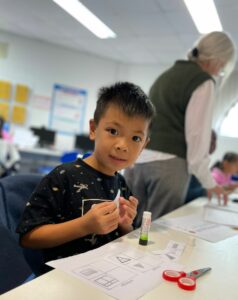 We guarantee to work with your child until they feel confident to flourish and no longer feel daunted by the problematic area. Combined with our expert tutoring, their school work and extra homework from us; your child will feel supported, encouraged and will make progress in the areas you are concerned about.
We guarantee to work with your child until they feel confident to flourish and no longer feel daunted by the problematic area. Combined with our expert tutoring, their school work and extra homework from us; your child will feel supported, encouraged and will make progress in the areas you are concerned about.
Can you tutor my child with a Special Educational Need?
We are not a SEN centre, but because we tailor our lesson plans to the specific needs of each child we have taught children with diagnosed ADHD, Aspergers, Dyslexia, Autism and others in the past. If your child falls into one of these categories it’s very important you get in touch and set up an interview with us and an assessment. Then, we can establish whether we can effectively tutor your child.
Our Portsmouth Centre has wheelchair access and the use of a disabled toilet. We want to offer the best for all the children we tutor, so this is a very important process. We are always willing to go the extra mile regardless of any special need. Please call for more details.
If you have a question or concern why don’t you email us at tutors@ilovetolearn.co.uk
A Guide to the Cost of Private Tutors
Why Does the Cost of Tuition Vary So Much?
 According to prospects.ac.uk after-school tutors in the UK charge from around £20-£60 per hour in 2025. Of course all of this will depend on a great deal? Is the tutor qualified? Does the tutor have experience with children? What qualifications does the tutor have in the subject and what exams (if any) is the child working towards? It would be quite normal to pay £65 per hour for GCSE tuition and much more than that for the best 11+ tutors in London say! (Tutorfair.com have prices of over £100 per hour for specialist 11+ tutors/entrance exam tutors)
According to prospects.ac.uk after-school tutors in the UK charge from around £20-£60 per hour in 2025. Of course all of this will depend on a great deal? Is the tutor qualified? Does the tutor have experience with children? What qualifications does the tutor have in the subject and what exams (if any) is the child working towards? It would be quite normal to pay £65 per hour for GCSE tuition and much more than that for the best 11+ tutors in London say! (Tutorfair.com have prices of over £100 per hour for specialist 11+ tutors/entrance exam tutors)
So why is there so much variation?
What Makes Some Tuition More Expensive?
Does The Fee Include Overheads?
Some tutors work from home or will visit the student’s home, so may have travel expenses which are high at the moment. Some tutors work from a centre, so they have to pay overheads such as power, rent and rates. The resources and working environment may be better but it will cost a little more.
How Experienced and Qualified are the Tutors?
This is probably the biggest variable as tutors do not have to be qualified to offer their services. Some tutors may have a degree in the subject they are teaching and some tutors may have teaching qualifications and classroom experience in schools, so will expect to be better paid.
Does the Tutor Pay VAT?
Tutors do not have to pay VAT on the private tutoring they do if they are self-employed. Companies will need to pay this tax however if they go over the VAT threshold. The government have recently changed the law on this as some agencies were avoiding VAT, now they will all have to pay it too.
have recently changed the law on this as some agencies were avoiding VAT, now they will all have to pay it too.
What Education Level or Exam is the Student Aiming For?
Generally the higher the level of qualification the student is studying for the fewer tutors will be qualified to teach that subject. If you are studying for a maths degree, for example, it will be more expensive to hire a tutor. The tutor will have to be more experienced and qualified themselves and the lessons will take longer to prepare, therefore they will charge more.
What Makes Some Tuition Less Expensive?
The Number of Students in a Group
One way to reduce costs is to teach more students at a time. This may lead to a less individualised lesson if the planning is not well organised.
What Is the Preparation Time?
Using standard resources and computer programmes is a way to reduce costs. This reduces the preparation time for tutors and so reduces the amount of time spent on each lesson, before and after. Some companies use AI computer resources which respond to the child’s progress so the tutor does not need to do any planning.
Online or In Person?
Online tutoring can provide services anywhere which increases the supply of tutors and therefore reduces the cost. For example, they could be from another country with lower wage costs.
 Why are some tuition companies more expensive?
Why are some tuition companies more expensive?
Generally, the more qualified and experienced the tutors are, the higher the fees are going to be. Some tutors will charge more because, even though they may not pay VAT or have to pay wages, they may have built up a reputation that allows them to increase their fees. Also, in some regions there is a lot of competition for independent school places and therefore a lot of demand for 11+ tutors. This drives up prices.
Why are some tuition companies cheaper?
Some ‘tuition centres’ do not employ fully qualified tutors, in fact some may just be enthusiastic graduates or less. Some education businesses do not actually teach the children but allow the computer AI to teach them. If a tutor lacks experience and qualifications, teaches online or doesn’t have to travel far, they are likely to charge a lower fee.
I Love to Learn Professional Tuition-Where do we fall?
We only employ fully qualified and experience teachers to be tutors here at I Love to Learn. This means that we don’t even interview anyone unless they have QTS (qualified teacher status). We also expect tutors to have a number of years of actual classroom experience.
We run dedicated education centres which means we have to pay overheads. It does give us the advantage of having all our resources in one place and the ability to run tuition in small groups. For those reasons our frees of £48 for each 80 min session, which works out at only £36 per hour, and we think is great value. We also think the teaching environment, the excellent computer/non-computer resources and the fun of small group learning make our tutoring a really high quality product.
11+ Entrance Assessments 2024/25
Independent Schools in Portsmouth, Fareham & Havant
Greetings, parents! In the Portsmouth area, you’ll find a variety of independent schools, each offering its own unique blend of educational ethos and environment, ranging from the grand to the intimate, and spanning a spectrum of academic rigour. We take great pleasure in assisting children with their preparation for the 11+ common entrance assessments, recognising the significance of this milestone. Additionally, we recognise the importance of ensuring everyone is well-informed regarding relevant dates and schedules. We’ll be sure to keep you updated on that front.
Scholarships
Academic Scholarships may be awarded to the top achievers based on the results of the school’s 11+ assessment. The criteria for this will vary from school to school, so you must apply directly to them.
Additionally, some schools offer scholarships for excellence in Art, Drama, Music, and Sport at 11+, 13+, and Sixth Form. These need to be applied for, and applications are usually submitted by the end of November preceding the September of entry. You can apply for more than one scholarship.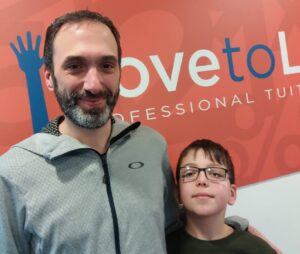
Financial Assistance
Some schools may offer financial assistance (means tested on income and exam performance) for Year 7 and Year 9 entry, and the deadline for applying is normally the end of November prior to the year of entry. Often, financial assistance is allocated first and foremost based on the child’s exceptional performance in the Entrance Assessments; the financial information you provide is then considered.
N.B. Please note that advice given here may vary between individual schools. It is important that you get in touch with individual schools to find out their exact criteria for entry requirements, scholarships, and financial assistance.
Common Entrance Assessment or 11+
This exam is so called as it is taken at the age of 11 years at the beginning of secondary education. Not all independent schools are selective, but almost all schools will want students to take an entrance assessment exam of some kind.
The entrance exams always cover maths and English to a high level. Children are also usually tested on their verbal and nonverbal reasoning. These tests are designed to be more difficult to prepare for as they are not school subjects. Verbal reasoning is concerned with language and word problems, while non-verbal reasoning includes logic, shape, and number patterns.
The 11+ Assessments typically consist of the following: Maths (50 mins); English (45 mins); Reading Comprehension (30 mins); Non-verbal Reasoning (30 mins); plus an Interview (20 mins).
Full Bursary
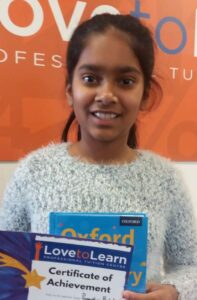 “We are so pleased that Mahera has got a FULL BURSARY for the local girl’s high school in Portsmouth. She has been to your centre before for tuition but we came back in November so she could get ready for the exams. She has worked so hard and Linda has really encouraged her in her writing! Thanks so much!”
“We are so pleased that Mahera has got a FULL BURSARY for the local girl’s high school in Portsmouth. She has been to your centre before for tuition but we came back in November so she could get ready for the exams. She has worked so hard and Linda has really encouraged her in her writing! Thanks so much!”
Click here to read more about our success…..
Portsmouth High School for Girls
Music, Art, Drama & Sport Scholarship Day
Monday 6th January 2025
11+ Assessment Day
Tuesday 7th January 2025
Portsmouth Grammar School
11+ and 13+ Entrance Assessment
Saturday 9th November 2024
Mayville High School
All Candidates Sit Exam
Saturday 16th November 2024
The Gregg School
11+ Entrance Assessment
Saturday 25th January 2025
Meoncross School
Open Week: 25- 29th September 10.45am
Open Morning November Friday 24th November 10.45am
Boundary Oak School
Assessment can be booked all year
Are you considering entering your child for an independent school? Book a Free Assessment today!
NOW IS THE TIME
If your child is currently in Year 5, then NOW is the time to start preparing for the entrance assessment exam in January.

During your child’s free forty-five-minute assessment we will:
- Test your child’s reading age, spelling age and maths ability.
- Give you honest feedback on your child’s ability to pass the entrance exams for each school.
- Discuss our previous experience preparing students for entrance exams for local independent schools.
- Give you a breakdown of the topics your child needs to cover to prepare for the entrance exam.
- Explain our materials and teaching methods to you.
- Give you the chance to ask any questions and to tap into our expertise.
Click here to find out more about tutoring for Entrance Exams …
Administrator (Part Time)
Administrator (Part/Time)
Summary
A part-time administrator is required to help support the thriving I Love to Learn Professional Tuition after-school tuition centres; in Havant, Fareham and Portsmouth. Hours are flexible during daytime or early evening.
Communication
- Internal-e.g. emails and calls to customers
Missed sessions and catch up sessions
- External-e.g. letter and emails to schools
Finance
- Recording payments-non-automatic
- Following up late payments
- Updating financial records
Data Management
- Keeping Calendar and database up to date
- Updating management data
Qualifications and Education Requirements
DBS cleared
Customer service skills
Ability to work independently
Verbal communication skills
Attention to detail
Numeracy and literacy skills
Salary and Hours
Hours to be negotiated, but minimum of 6 hours a week initially
£10.50 per hour (depending on experience)
Summer School 8th -12th August 2022 Fareham Centre
Maths and English Fun in Fareham
 Summer will soon be here and we are offering a Summer School in our Fareham Centre! Each student receives 10 hours of professional tuition with fully qualified teachers. Some children stay in the afternoon for sport activities at the John Pounds Centre in Portsmouth. Transport will be provided.
Summer will soon be here and we are offering a Summer School in our Fareham Centre! Each student receives 10 hours of professional tuition with fully qualified teachers. Some children stay in the afternoon for sport activities at the John Pounds Centre in Portsmouth. Transport will be provided.
During the week our tutors are able to give each child a really good boost in maths or English. As they are not at school we can teach longer sessions each day (2hrs). This allows us to focus on a smaller number or skills to really work on. Summer School is always a really fun and positive experience with children getting lots of stamps and stickers and feeling they really have made a lot of progress! Many of our families enjoy it so much they come back year after year!
Some children will want to stay in the afternoon to do the sport programme. Children will be transported to and from the John Pounds Centre each afternoon. We are again collaborating with Michael Whitelock at Go Active Camps who we have worked with many times before.. The morning tutoring is run by our experienced tutors in the John Pounds Centre IT Suite. After that the children have a full programme of games and activities designed to boost their physical, social and cooperative skills.
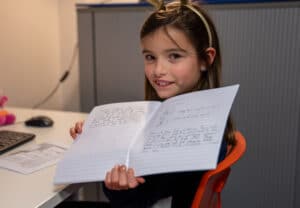
Summer School 8th -12th AUGUST
Ages 6-16 years
*Early Bird Price for 9-3.30pm Tuition and Sport £300 £270 or Tuition only £235 £220*
Tuition: Maths & English 9-11am or 12-2pm Cost £235 £220 6-16yrs
A full ten hours of professional tuition in reading, writing, spelling and maths to boost your child this summer. Individual plans and all abilities catered for. Classes in our Fareham Centre.

Tuition and Sport*: Maths & English Tuition + Sport & Games 9am-3.30pm Cost £300 £270.
Sport*: Sport & Games and other activities with fully qualified coaches from Go Active Camps at the John Pounds Centre, Portsmouth.
*Transport is available to take students from the Fareham Centre and back to John Pounds Centre for the sport activities.
*Early Bird Price £300 £270 pay by May 31st*
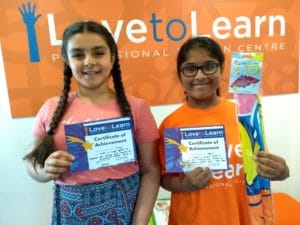 Gain Confidence
Gain Confidence
For children who have struggled in school, summer is an invaluable opportunity to catch-up on key skills and feel more confident when they return to class. For students who do well, it is an opportunity to keep their enthusiasm for learning high.
If your child needs help with reading, writing, spelling or maths call Howard or Linda for a free assessment on 023 93 96 86 26 now.
Summer School 15th -19th August 2022 John Pounds Centre
Maths and English Fun at Summer School
 Summer will soon be here and Summer School 2022 is here by popular demand! Each student receives 10 hours of professional tuition with fully qualified teachers. The children stay in the afternoon for sport activities.
Summer will soon be here and Summer School 2022 is here by popular demand! Each student receives 10 hours of professional tuition with fully qualified teachers. The children stay in the afternoon for sport activities.
We are again colaborating with Michael Whitelock at Go Active Camps and the John Pounds Centre. The morning tutoring is run by our experienced tutors in the John Pounds Centre IT Suite. After that the children have a full programme of games and activities designed to boost their physical, social and cooperative skills.
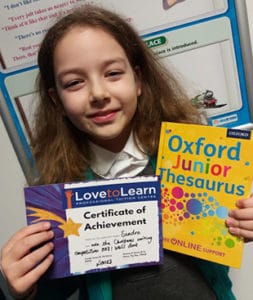 During the week our tutors are able to give each child a really good boost in maths or English. As they are not at school we can teach longer sessions each day (2hrs). This allows us to focus on a smaller number or skills to really work on. Summer School is always a really fun and positive experience with children getting lots of stamps and stickers and feeling they really have made a lot of progress! Many of our families enjoy it so much they come back year after year!
During the week our tutors are able to give each child a really good boost in maths or English. As they are not at school we can teach longer sessions each day (2hrs). This allows us to focus on a smaller number or skills to really work on. Summer School is always a really fun and positive experience with children getting lots of stamps and stickers and feeling they really have made a lot of progress! Many of our families enjoy it so much they come back year after year!
Summer School 15th -19th AUGUST
Ages 6-12 years
*Early Bird Price for 9-3.30pm Tuition and Sport £300 £270*
 Tuition & Sport
Tuition & Sport
Maths & English 9-11am
A full ten hours of professional tuition in reading, writing, spelling and maths to boost your child this summer. Individual plans and all abilities catered for.
Sport and Games and other activities with fully qualified coaches from Go Active summer camps until 3.30pm.
Learn some new skills, cooperation and coordination.
Classes are held at the John Pounds Centre, Portsea.
*Early Bird Price £300 £270 pay by May 31st*
SUMMER SCHOOLS/CLASSES-Booking Request Form
Booking form for Summer School and Summer Classes 2022
Many Children Fall Behind
‘Research shows as many as one in three children can fall behind as a result of a seven-week break from the classroom.’
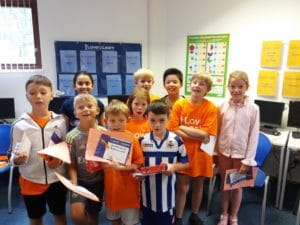
For most children, summer is a time to leave classes and homework behind. While summer is a holiday from school, it does not have to be a holiday from learning. The summer holiday is great for recharging your children’s batteries, but if they are not using the skills and knowledge that was learned in the classroom, they will find themselves struggling when school starts up again.
Skills and knowledge gained throughout the school year fade during the summer months. Research shows that loss of content retention begins within 24 to 48 hours of learning unless the new information is reinforced or applied immediately. That is why, during summer holidays, even the best students forget lessons they have learned during the school year. After a month without reinforcement, approximately 80 percent of what a student has recently learned can be lost.
Gain Confidence
For children who have struggled in school, summer is an invaluable opportunity to catch-up on key skills and feel more confident when they return to class. For students who do well, it is an opportunity to keep their enthusiasm for learning high.
If your child needs help with reading, writing, spelling or maths call Howard or Linda for a free assessment on 023 93 96 86 26 now.
Request a Call Back
Top Ten GCSE Maths Exam Tips & Dates
When are the GCSE exams 2025?
GCSE Maths exams
GCSE English Language exams
Maths GCSE Examination Tips
Getting GCSE exam ready takes lots of practice. These tips are to help you tackle the exams and to get the best possible result, they are not a substitute for good preparation and revision prior to the exam.
Imagine: You are in the exam room. The paper is in front of you. You have been told to write your name on the front of the paper (please make sure you do this!!). You are told to begin…how do you feel?
Many students, despite hours of revision, will still feel nervous. Despite these feelings you can still do well.
 Gettting Started
Gettting Started
Step 1 – Take a breath
Take a deep breath in and slowly breathe out. This will give you a moment of calm and stop your heart from racing. Look at the clock and now open the paper.
Step 2 – Flick through the paper
For about 3 minutes flick through the paper and put a tick against the questions you like the look of and a star against those you don’t like the look of. The ones you have ticked can be tackled first – this will build your confidence and get you warmed up. These questions will take you less time to complete, so that you can then spend a longer amount of time on the trickier questions.
Having said that, the number of marks in a question is the indication of the number of minutes to be spent on it. 1-mark questions require little more than 1 minute; 2 marks, 2 mins and so on. If a tricky question is taking up too many valuable minutes, it’s okay for you to move on and come back to it later.
Step 3 – Read the Question
Now, answer as many questions as you can. Once you have answered each question, take a moment to read the question again. Have you answered the question? Have you answered the question in the way it requires? Have you rounded correctly? Does your answer make sense? Using this moment can enable you to pick up marks you may have otherwise lost.
Tip 1- Be Tidy or at Least Clear
Make sure your work is as neat and tidy as possible. Make it easy for the examiner to assess your work and award your mark.
 Tip 2-Use the Calculator
Tip 2-Use the Calculator
For the calculator exam – use the calculator! Chief Examiners have noted that students sometimes work out calculations manually when they should be using a calculator. Know your calculator prior to the exam, use the one you always use!
Remember to write on the paper any calculation that you type into the calculator as this will give you the extra marks.
Tip 3-Round the Numbers at the End
Write down the figures on your calculator and then make a suitable rounding. Don’t round the numbers during the calculation. This will often result in an incorrect answer.
Tip 4-Are You Sure You’re Right?
If you’re in the situation where you try two methods and you aren’t sure which one is correct, don’t put an answer on the answer line. If you do, the examiner will ignore the working that doesn’t lead to that answer. If you leave the answer line blank, the examiner will mark both methods and award whichever one is lower.
Tip 5-Attempt All Part of Questions If You Can
Look at all parts of a question. Even though you may not be able to complete the first part of a question, if the second part is unrelated, it may be easy for you to complete.
Tip 6-Cross Out What is not Relevant
For wordy questions, cross out any information that is unnecessary and/or highlight the words that are needed for your calculations. If it’s relevant make a sketch or a drawing that can help you to think about the problem.
Tip 7-Include Your Workings
If there are 3 or more marks available for a question, then be sure to include your workings (even if the question does not ask for your workings). You are unlikely to get full marks for just the answer.
Tip 8-Know Your Units!
How many mms in a cm; cms in a metre; metres in a km; etc. Be sure to put your units on the answer line as this is usually worth an extra mark.
Tip 9-Only Write or Draw in the Answer Space
Do not write or draw anything outside of the answer space. It is likely to be missed by the examiner and you will drop marks. If you need extra space to write, draw an arrow indicating where the extra writing is. If the examiner cannot read it, or is not clear where the answer is, you will not get the marks.
Tip 10-Put a Hand Up and Make a Request If You Need to
You should have all your own equipment for the examination, and you should be confident in using it. However, don’t be afraid to ask for help or equipment if you need it during the examination – your pencil may need sharpening; the batteries on your calculator may run out; you might need tracing paper for that transformations question. The invigilators are there to help.
We wish you every success!
Where Are They Now?
I Love to Learn Find Out What Happened to Some of Our Ex-Students
Having tutored children in Portsmouth since 2005, many of our students have gone on the better things. Occasionally I notice on LinkedIn or Facebook what people are doing now. I thought I would share a couple of stories:
Tom Malbon

Tom studied English with us over ten years ago. He says “I would say that the tuition was a big help early on when I was struggling with grammar and spelling and helped me get on track to achieve in later years.”
He is currently in his second year studying BEng Hons Mechanical Engineering at Oxford Brookes University with the aim to achieve a career in Formula one. He is also an active part of the Aerodynamics department at Oxford Brookes Racing as they aim to participate in various Formula Student competitions across Europe.
Great to hear from you Tom!
-
Mary Amalathas
Mary also came to us for help with English and was always a very hard working student. She recently started her own Accountancy practice called ‘Accountants247 Portsmouth’ offering various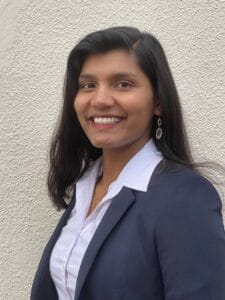 Accountancy services for sole traders, companies and contractors. She says, “I have a team who help with some aspects of my work. Currently I am also providing interim Accountancy work for a corporate company.”
Accountancy services for sole traders, companies and contractors. She says, “I have a team who help with some aspects of my work. Currently I am also providing interim Accountancy work for a corporate company.”
“Linda had helped me tremendously by going above and beyond in various aspects of preparation for my GCSEs, including a one-to-one for Science which was not even offered by the tuition centre at the time. The only regret is that I didn’t join ‘I love to learn’ any sooner. I can safely say that I got through some subjects like English Literature only because of Linda’s guidance and the techniques she taught me. I am forever grateful to her. Linda takes great care and attention with each child she teaches.”
Thank you both for your kind words!
School Led Tutoring Programme
Can I Love to Learn Professional Tuition Help You with the School Led Tutoring Programme?
- Introduction to I Love to Learn Education Centre
Opened in 2005 has become the premier service for maths and English after school tuition in Portsmouth. Since then we have helped hundreds of students turn around their skills and confidence in the area of maths and numeracy. Our tutors are all fully qualified and experienced classroom teachers. We now have centres in Portsmouth and Fareham with plans to expand further. Demand is very high at the moment and we teach a range of children from Year 1 to Year 11 in both of our growing centres.
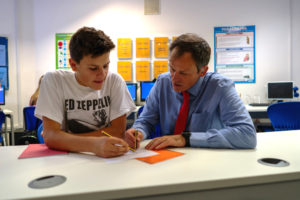 Working with Schools
Working with Schools
Are you looking for partners to deliver your National Tutoring Programme ?
In January 2020 we were tutoring maths at Havant Academy with small groups of Yr 11 students. We therefore have direct, current experience of delivering small group tuition in schools.
Over the years we have worked with a number of schools including Ark Dickens Primary (Portsmouth), Priory School (Southsea) and taught many LAC through Action for Children and other fostering organisations.
- Our Tutoring Programmes
Here at I Love to Learn, we have experience in designing individual programmes for pupils. We focus on either English or maths to boost pupil’s achievement and support them to make more than expected progress. At the moment we are only offering maths tuition at the secondary level.
We provide an individual initial assessment which will baseline student’s current level of attainment.
We then plan a bespoke programme which is delivered by our qualified, experienced teachers using our unique resources.
Additionally, we can track the progress that your pupils make on our plans.
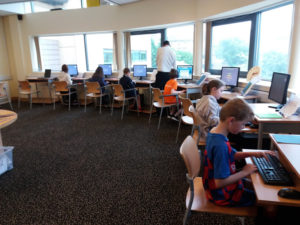 Small Groups
Small Groups
The tutoring takes place in small groups of 3. We find that individual tuition delivered in small groups reduces the pressure on students, and is more motivating, as they are working alongside others. We would emphasise that it is not small group work, as each child does different work suited to their level of ability.
Effective feedback-This is delivered by the tutor monitoring and marking the child’s progress throughout the session. The tutors are trained to give praise for good effort and progress, when it is deserved. Stickers and stamps are given out as/ when work is completed to gain prizes/rewards. Our computer tuition resource gives instant feedback to tutors and children.
Homework-we set homework that is often a repeat of work that has already been done in their session. We use this to check that children can complete it independently and to analyse areas of weakness that need to be re-enforced. This also links with parts of the programme carried out in the centre and is therefore progressive.
ICT-All the students use ICT in the lessons with the sessions being planned and delivered with our numeracy programme. This includes a combination of written and computer activities, but all marking and progress is recorded. Right and wrong answers can be tracked. Many of the activities are first written and then re-enforced with a computer activity .
Base Line Assessment: we test each child’s reading age, spelling age and writing/maths skills depending on the subject/subjects requested. We use this to plan where each child starts in our tutoring programme. The work is tailor made to target the child’s specific weaknesses. With greater success the child’s confidence and enjoyment returns, and they are able to re-engage with the learning process.
- Delivery of Secondary Maths & English Programmes
KS3 Numeracy
- 60 minute session
- Warm up:Tables
- Core Maths 1 to 9
- Core Skill Builder
- Target GCSE Maths Area 1
- Target GCSE Maths Area 2
- Games-arithmetic
Students are given one sheet of core maths homework at the end of the session.
Our focus is on improving fluency as well as accuracy with number and & then higher-level skills. With the basic skills secure we can then focus on other KS3 topics. We set a mixture of at least six activities lasting from 5-15 minutes each.
KS3 Literacy
- 60–minute session
- Warm up: reading or vocabulary
- Core Skill English Grammar/Punctuation
- Core Skill Builder Comprehension
- Target Grammar
- Target Writing/Planning/ Proof Reading/Re-Writing
- Games-Spelling
Students are given one sheet of core mixed homework at the end of the session.
We aim to build skills across the range of literacy targets depending on the areas of weakness displayed by the student. With the basic skills secure we can then focus on KS2 written expression and writing for purpose. We set a mixture of at least six activities lasting from 5-15 minutes each.
Re-Assessment and Reporting
A base line score is recorded at the beginning of the pilot.
Individual Report-work done, and progress is recorded on our paper plans each lesson.
We re-assess at the end of the period and provide a full report to show progress. This can be sent hard copy or by email.
- Example Pilot
Pilot to assess the effectiveness of the maths & English tuition programme offered.
Students chosen by school
Start with 2 groups of 3 students from any year
Cost of session is £18 per student per hour
5 weeks -2 sessions per week or 10 weeks- 1 session per week
80 sessions
Cost of Pilot
Cost is 10 session x 8 students x £ = £1,440
Resources needed
Any quiet workroom
All other resources will be provided
Conclusion:
We are committed to providing the best possible service in whatever way possible. We have worked closely with schools, fostering agencies and the City Council in the past to widen our offer. We have taught SATs boosting class for a local Primary School who visited our centre.
We are looking forward to working together with you!
How to Analyse Poetry for GCSE English Literature?
Here is some advice for students or GCSE English Literature
Here is some important advice for students preparing for their literature exam. They need to know the books and poems that they will be examined on. The more planning and preparation they put in the better.
Get Familiar With the Exam

English Literature GCSE is divided into two papers. Paper 2 (2hrs 15mins, 60% of the marks) is in 3 parts. Parts B and C are on poetry.
B- You will answer one comparative question on one named poem printed on the paper and one other poem from your chosen anthology.
C- You will answer one question on one unseen poem and one question comparing it with a 2nd unseen poem.
How to Analyse Poetry for GCSE English Literature
-
What is the poem about?
e.g ‘This poem is about the narrator’s experience of the war’.
-
What is the purpose (or theme/message) of the poem?
- Why has the poem been written?
e.g. ‘The poem has been written to enable the reader to feel the trauma of war’.
-
What emotions, moods and feelings are being communicated?
e.g. ‘The general atmosphere the narrator creates is one of fear and the futility of war’.
-
What techniques does the poet use to create the emotions, mood or feelings?
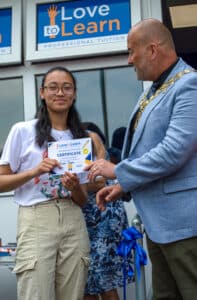
Success!
- You will need to identify and name different technical terms that are used in the poem.
e.g. ‘The poet uses repetition of the word ‘fear’ to emphasise how frightened everyone was.
Techniques that may need identifying are:
Form- The rhyme and rhythm of the poem, often relates to the overall theme. (Also changes in the lengths of lines or verses).
Imagery- Does the poet use language that creates an image in your mind?
Structure- What is the order in which ideas are created? Is there a key point at which the mood or focus changes?
Literary devices- Poets use numerous devices to communicate their ideas and emotions. These can include: similies, metaphors, alliteration, personification, enjambment, caesura, hyperbole, onomatopoeia, oxymoron and rhetorical questions.
-
What do you think about the poem?
e.g. ‘ The poem makes the reader feel the narrator’s fear from the battle as well as the overall futility of war’.(Avoid using ‘I’).
– Are there other ways the poem could be interpreted? (Ambiguity)
Click here if you would like to find out more about our English tutoring….
Additional recommended resources:
Unseen Poetry-The Poetry Guide for the grade 9-1 course (CGP)
Power and Conflict- The Poetry Guide for the grade 9-1 course (CGP)
Love and Relationships- The Poetry Guide for the grade 9-1 course (CGP)

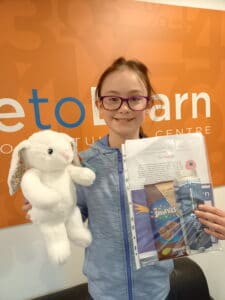 “We had planned to stop the tutoring after the 11+ exam, but with the next lockdown and more disruption to her education, we quickly relented when she literally begged us to continue going! The sessions are adjusted to her needs and she describes them as ‘really fun’ and she likes it that the work is specific to her level and much more individualised than the class work at school.”
“We had planned to stop the tutoring after the 11+ exam, but with the next lockdown and more disruption to her education, we quickly relented when she literally begged us to continue going! The sessions are adjusted to her needs and she describes them as ‘really fun’ and she likes it that the work is specific to her level and much more individualised than the class work at school.”



